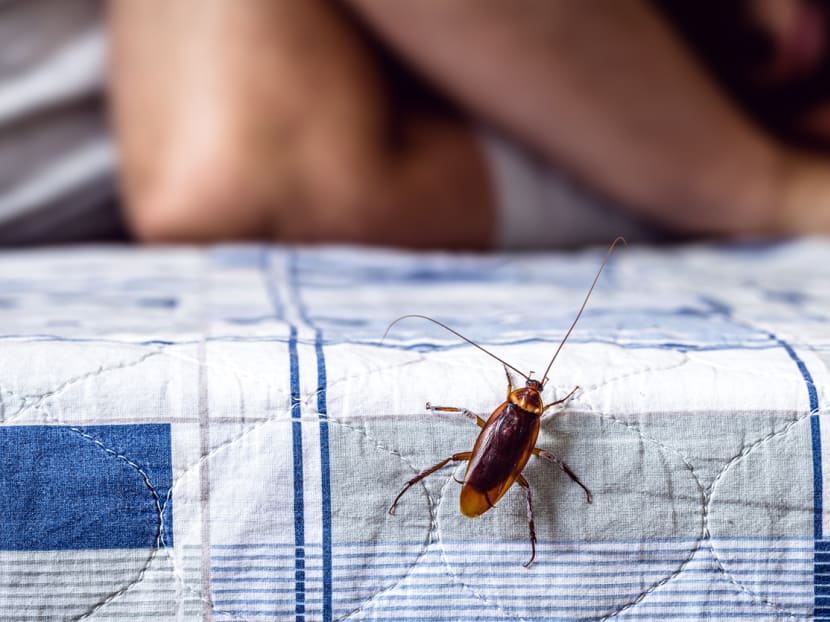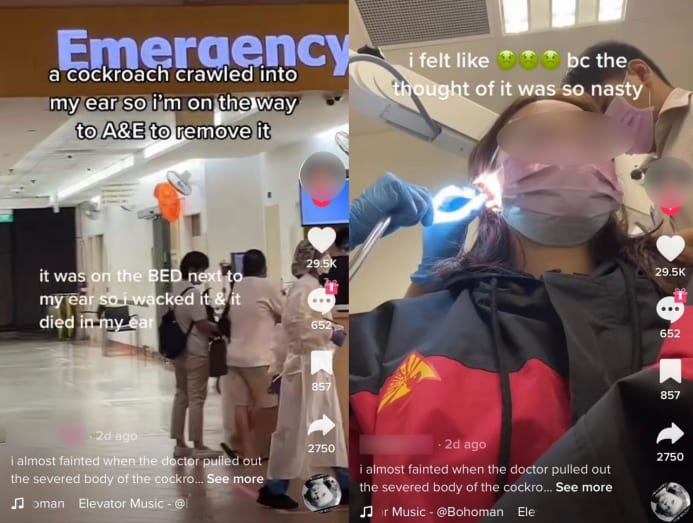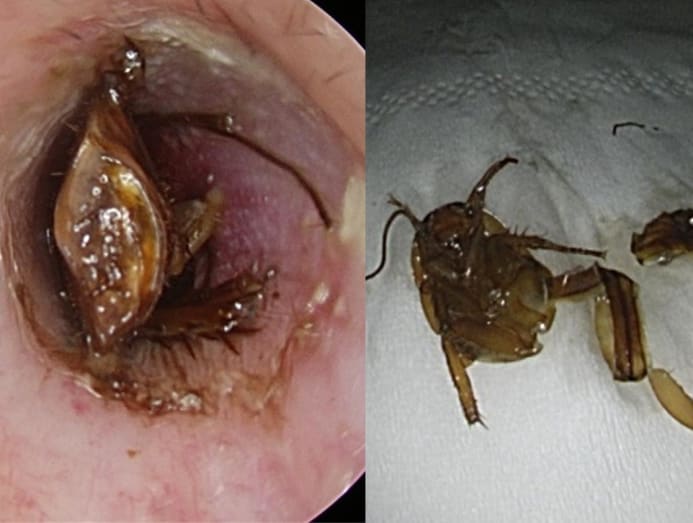What should you do if a cockroach crawls inside your ear? Don’t try to get it out yourself, says a doctor
A TikTok user says she put mouthwash in her ear to deal with a cockroach that crawled inside her ear, before she sought help at A&E. Here's what you should and shouldn't do, according to an ENT specialist.
Warning: Some icky images below.

File image of a cockroach crawling on a bed (Photo: iStock)
What should you do if a cockroach crawled inside your ear? We don’t know about you, but our reaction would be to get it out now!
That was exactly what a young woman in Singapore did when a sizeable cockroach (about 4cm) got into her ear while she was sleeping. In the TikTok video she posted, she recounted initially feeling its legs tickling the outside of her ear and when she “whacked it really hard”, it escaped into the only opening it could find: Her ear.
Her first instinct was to run into the bathroom, fill a bottle-cap full of mouthwash and pour it into her ear. Luckily for her, the mouthwash did manage to drown the cockroach, she said, but she could still hear the “crackling” of the insect’s remains.
So she tried to pull out the dead bug out with a pair of tweezers. She recounted in a TikTok video: "Yo guys, like, I broke it into, like, pieces. So when some of it came out right, the white guts came out, and like the skin of the cockroach – the f******, like oh my god, the brown shell came out".
The rest of the cockroach was removed “leg by leg” at the hospital using specialised tools, she said.

MY EAR IS BUGGED!
So how common is this scenario? Apparently, it's not as rare as you think.
“I’ve seen a few such cases and they tend to occur during sleep,” said Dr Lim Keng Hua, an otorhinolaryngologist and ENT specialist at Mount Elizabeth Medical Centre’s Ear, Nose Throat, Head & Neck Surgery. “The most recent was a man who came into the A&E late last year with ear pain. He was sleeping on the floor and a cockroach crawled into his ear.”
If you ever find yourself in such a situation, don’t try to get the bug out yourself as much as you’re dying to, said Dr Lim.

“When an insect such as a cockroach crawls into a dead end such as your ear, it can’t reverse. It is very likely to play dead and stay still,” he said.
You won’t be the only one panicking in such tight situations. “If you touch the cockroach with tweezers, it will scramble. Then, it’s likely to cause damage to the eardrum and ear canal. You want to prevent the insect from moving.”
Moreover, your home tweezers are not going to be very useful as specialised tools such as micro-forceps and suction tools are used for such extractions, according to Dr Lim. Even with such tools, the cockroach is often removed in two or three pieces, “sometimes more”, he said.
And certainly don’t pour anything into the ear, least of all, mouthwash. “We use alcoholic ear drops to kill the insect and prevent it from moving” and although mouthwash can contain alcohol, it is not a suitable solution for pouring down the ear, said Dr Lim.
Home remedies such as olive oil or baby oil are not advised either. “The oil makes everything slippery, which makes it harder to extract the insect,” said Dr Lim. Instead, keep your ear dry.
Your best move? Go to the A&E, pronto. If a general practitioner's clinic is nearer to you than a hospital’s A&E, get yourself there. Before leaving, take a painkiller to help you with the ear pain, advised Dr Lim.
"It is an emergency and you should get yourself medically checked," he said, even if the pain has subsided. "Any organic material left in the ear canal can lead to infection."
Sometimes, though, that itchy, scratchy feeling that makes you suspect the worst could be caused by your earwax. “Remember that your ears are self-cleaning. When the wax ‘rolls’ out of the ear canal, it may feel itchy,” said Dr Lim.







